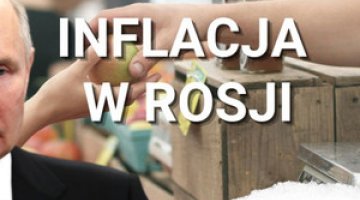Local elections in Russia –defeat for the opposition and the growing political costs of the government’s victory
On 14 October, local elections at various levels were held in Russia, including the elections of governors in five oblasts. The governors were elected for the first time in eight years. Direct election at this level was reintroduced by President Dmitry Medvedev in response to public protests in late 2011/early 2012. The elections at all levels were won by the party linked to the government, a United Russia, or by candidates who were backed by it.The turnout was quite low, predominantly at a level similar to that during the previous local election. It ranged between 14% and almost 50%, depending on the location and significance of the election.
Commentary
- The way the campaign was conducted and the elections themselves have shown that, although the governors are no longer nominated and are instead elected, political life in Russia’s regions has not been liberalised. The ‘municipal’ filter introduced before the elections – i.e. the requirement to obtain support from between 5% and 10% of representatives of local legislative authorities – significantly reduced the participation of independent candidates for governors. Furthermore, the candidates who were backed by the government also received extensive support from the local administration and media.
- The elections revealed the weakness of the opposition movement, for whom this was to be the first litmus test since the mass protests. The opposition failed to present a coherent and appealing agenda. Despite the initiative to create common candidate lists, it turned out to be impossible to avoid conflicts and rivalry at local level. The opposition was unable to effectively promote the candidates it backed, and thus, with few exceptions (in the elections to city councils, the Parnas party won one seat in Barnaul, and Yabloko won seven seats in Yaroslavl and in three other cities), it will have no representatives in local government. The opposition also failed to use the elections to win greater public support. It was unable to mobilise its electorate; the turnout was low even at the places where the opposition candidates ran for governorship or where well-known opposition candidates sought election to local government. This proves that the opposition operating outside the system cannot at present pose a challenge to the government by forming a legal representation.
-
The so-called 'licensed' opposition also performed poorly as it achieved a worse result than in the elections to the State Duma last year. The Communist Party of the Russian Federation was the only one to cross the election threshold to the local parliaments in all the regions. A Just Russia will have representatives in the parliaments in four of the six regions where local parliamentary elections were held, and the Liberal Democratic Party of Russia in two. The low level of support for these parties proves the thesis that they owed the good results they achieved in the most recent election to the State Duma to the negative vote against the United Russia and not to a real increase in their electorates.
- Despite the opposition’s weakness and the low mobilisation of its electorate, the government had to resort to manipulation in order to ensure to its candidates the desired result (the intention was for the result of the elections to indicate their clear advantage over the counter-candidates). Independent observers have reported mass violations, many of which have been documented on the Internet. Egregious abuse was seen in Bryansk and Novgorod Oblasts, where the government-supported candidates for governors were extremely unpopular. This means that the political costs the government needs to pay to ensure electoral victory are still growing.




